Everlasting Growth, Sustainably Reimagined
Learn our solutions to achieve a thriving yet sustainable, tailored specifically to your organization
Products
Tackle your business most pressing issue in the sustainability space with us
Sustainability Consultancy
- Sustainable Transformation Strategy
- Sustainability Ratings
- Public Survey & Questionnaire
- Sustainable Public Policy
- CSR Program Strategy
Public Relation Agency
- Program Ideation and Implementation
- Public Communication Strategy and Implementation
- Program Branding Strategy and Implementation
Expertise
Our network of experts spans across six main fields, each contributing their expertise to advance knowledge and drive innovation.
Green Energy
- Green energy
- Low carbon technology trade and supply
Green Economy
- ESG investment
- Sustainable and blended financing
- Derisking green project investment
Sustainable and Livable Planet
- Waste management
- Clean air and water
- Climate mitigation and adaptation
Food Security
- Land use
- Modern farming
- Green facility
Sustainable MSMEs
- Integrated ecosystem
- Digitalization
- Ecopreneur
Clean Mobility
- EV infrastructure
- 2-wheeler innovation
- Sustainable fuel
News

News / Sustainable and Livable Planet
Press Release Sustainability Week UN: Perwakilan SRE Bicara di UN General Assemby
Redaktur Greenimpact
21 April 2024
Perserikatan Bangsa-Bangsa (PBB) menyelenggarakan agenda pekan keberlanjutan pertama dalam majelis umum perserikatan bangsa-bangsa atau dikenal sebagai United Nation General Assembly Sustainability Week). Majlis PBB mengenai isu keberlanjutan ini diselenggarakan pada 15-19 April 2024 bertepatan di kantor pusat PBB New York, Amerika Serikat. Dalam pekan keberlanjutan tersebut, akan membahas mengenai isu-isu keberlanjutan seperti pariwisata keberlanjutan, transportasi keberlanjutan, pembangunan keberlanjutan dan interkonetivitas infrastruktur hingga membahas energi yang terjangkau serta ramah lingkungan. Presiden Majlis PBB ke 78, Yang Mulia Dennis Francis mengundang tokoh-tokoh pemimpin dunia untuk menyampaikan sesuai dengan isu yang tersedia. Terdapat Perdana Menteri Barbados, Perdana Menteri Uganda, Preiden Republik Polandia hingga tokoh penting lainnya sesuai dengan keahliannya. Indonesia dalam perhelatan pekan keberlanjutan ini dihadiri oleh Menteri Pariwisata yang berbicara pada isu pariwisata keberlanjutan, Zagy Yakana Berian selaku tokoh muda inspiratif di sektor energi yang keduanya menyampaikan pidato diatas podium ruangan Majlis PBB. Selebihnya pidato pada sektor lain diwakili oleh Wakil Tetap Republik Indonesia untuk PBB, Arrmanatha Christiawan Nasir. Menariknya dalam Majlis PBB ke 78 di isu keberlanjutan ini, Yang Mulia Dennis Francis berkali-kali mengucapkan generasi muda menjadi aset penting pembangunan dunia. Hal itu terbukti, Yang Mulia Dennis Francis mengundang Zagy sebagai pembicara termuda diantara tokoh pemimpin bangsa lainnya dalam agenda penting keberlanjutan ini. Zagy Yakana Berian, pemuda kelahiran Karawang yang berusia 26 tahun, mendapatkan kesempatan berbicara di podium yang sama seperti pemimpin negara setingkat presiden, Menteri, atau duta besar. Lahir dan tumbuh bersama masyarakat yang merasakan langsung terkait akses untuk mendapatkan energi membuat pemuda tersebut menjadi pembeda dengan Majlis PBB sebelumnya. Yang terpenting, memperkuat kolaborasi dan mempercayai kepemimpinan generasi muda harus menjadi pembicaraan yang terus dilakukan setiap harinya. Tanpa adanya kolaborasi dan generasi muda, estapet pembangunan keberlanjutan ini lebih sulit untuk digapai. Pidato yang disampaikan oleh Zagy yang juga disiarkan dalam UN WEB TV pada tanggal 19 April 2024, menekankan mengapa harus generasi muda yang menjadi pilar pembangunan bangsa di sektor energi. Tiga nilai unik generasi muda yaitu unik, kongkrit, dan tulus mendapatkan apresiasi dari pembicara lainnya. Posisi energi yang ditaruh sebagai faktor akselerasi pembangunan lainnya sejalan dengan pesan yang disampaikan dalam sesi yang membahas isu lainnya seperti pariwisata, transportasi dan pembangunan. Apresiasi tersebut didasari oleh sudut pandang unik dari Zagy, alih-alih mengeluh dan meminta. Namun Zagy datang dengan bukti nyata yang telah dikontribusikannya, pemuda itu menaruh dukungan yang diharapkan setelah apa yang telah dibangun. Dengan pendekatan berbasis tiga keunikan tersebut, Zagy mengungkapan contoh nyata yang telah diterapkan di Indonesia. Diantaranya adalah pembangunan pembangkit listrik skala kecil yang direplikasi dibanyak tempat, peningkatan edukasi kepada publik mengenai transisi energi, pendekatan berbasis solusi permasalahan kepada masyarakat, serta program yang dimiliki oleh Kementerian Energy dan Sumber Daya Mineral (KESDM) yaitu Generation of Renewable Energy Involving Youth Action Academy (GERILYA). "Sudah lima tahun kami berdiri bersama masyarakat untuk memahami komitmen investasi mereka. Saya mengakui adanya tantangan ke depan, namun saya yakin bahwa generasi Anda dan kami dapat bersama-sama menciptakan perubahan dan ketahanan," ujarnya. Saatnya, kepercayaan antar generasi mulai dibangun, Zagy mengungapkan optimisme keberhasilan diantara tantangan yang ada, investasi kepada generasi muda menjadi kunci dalam mencapai target Tujuan Pembangunan Keberlanjutan atau SDGs serta Net Zero Target di pertengahan abad ini. “Terdapat dua mimpi besar generasi muda saat ini, yaitu, pendanaan terkait akses energi keseluruh wilayah agar dapat meningkatkan ekonomi daerah. Serta, pendanaan peningkatan kapasitas di sektor greenjobs dan mendorong ekosistem bisnis generasi muda”, ujar pemuda Karawang tersebut. Dalam penutupan pekan keberlanjutan tersebut, terdapat 150.000 deklarasi aksi mengenai keberlanjutan dalam aplikasi UN Act Now. Presiden Majlis PBB ke 78 sangat senang melihat antusiasme ini, dan berkomitmen mengeskalasi isu ini hingga ke pertemuan puncak September 2024 nanti yaitu Summit of the Future.
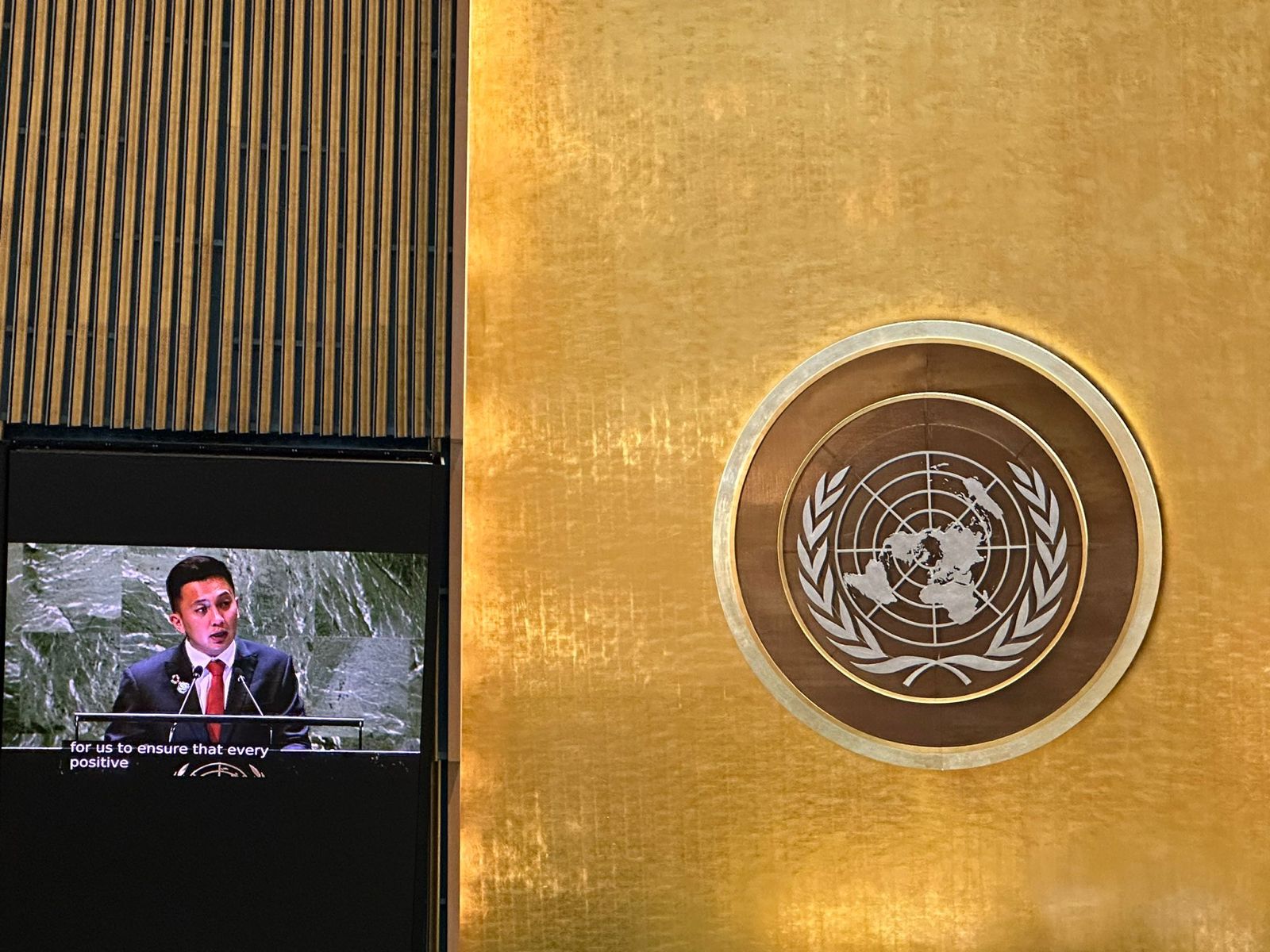
News / Sustainable and Livable Planet
Zagy, Anak Muda Asal Karawang Curi Perhatian Di Majelis Umum PBB
Bambang Trismawan
20 April 2024
Pendiri Society of Renewable Energi (SRE) Zagy Yakana Berian mencuri perhatian sebagai pembicara termuda dalam acara Pekan Keberlanjutan Perserikatan Bangsa-Bangsa (PBB) yang berlangsung di markas pusat PBB, New York, Amerika Serikat dari 15-19 April 2024. Zagy, pemuda inspiratif dari Karawang, Indonesia, berusia 26 tahun, berbagi panggung dengan pemimpin dunia dan tokoh penting lainnya untuk membahas isu-isu penting terkait keberlanjutan, khususnya di sektor energi. Dalam pidatonya yang disiarkan melalui UN Web TV, Zagy menekankan peran kritis generasi muda dalam mendorong pembangunan berkelanjutan. Dia mengungkapkan bagaimana generasi muda, dengan pendekatan unik, konkret, dan tulus, dapat menjadi pilar utama dalam perjuangan menuju Tujuan Pembangunan Berkelanjutan (SDGs) dan target Net Zero. Zagy menyoroti inisiatif yang telah diterapkan di Indonesia, termasuk pembangunan pembangkit listrik skala kecil dan program Generation of Renewable Energy Involving Youth Action Academy (GERILYA) yang berfokus pada partisipasi aktif pemuda dalam energi terbarukan. Dengan pendekatan berbasis tiga keunikan tersebut, Zagy mengungkapan contoh nyata yang telah diterapkan di Indonesia. Diantaranya adalah pembangunan pembangkit listrik skala kecil yang direplikasi dibanyak tempat, peningkatan edukasi kepada publik mengenai transisi energi, pendekatan berbasis solusi permasalahan kepada masyarakat, serta program yang dimiliki oleh Kementerian Energy dan Sumber Daya Mineral (KESDM) yaitu Generation of Renewable Energy Involving Youth Action Academy (GERILYA). Dalam hal ini, dua orang perwakilan Kementerian ESDM ikut hadir dan menyampaikan pesan dalam sesi intervensi sektor energi. "Sudah lima tahun kami berdiri bersama masyarakat untuk memahami komitmen investasi mereka. Saya mengakui adanya tantangan ke depan, namun saya yakin bahwa generasi Anda dan kami dapat bersama-sama menciptakan perubahan dan ketahanan," ujarnya. Zagy mengungkapkan, investasi kepada generasi muda menjadi kunci dalam mencapai target Tujuan Pembangunan Keberlanjutan atau SDGs serta Net Zero Target di pertengahan abad ini. “Terdapat dua mimpi besar generasi muda saat ini, yaitu, pendanaan terkait akses energi ke seluruh wilayah agar dapat meningkatkan ekonomi daerah. Serta, pendanaan peningkatan kapasitas di sektor greenjobs dan mendorong ekosistem bisnis generasi muda," paparnya. Presiden Majlis PBB ke-78, Yang Mulia Dennis Francis, menyatakan bahwa generasi muda adalah aset penting untuk pembangunan global, suatu tema yang Zagy Yakana Berian nyatakan dengan jelas dalam pidatonya. Dalam acara ini, Dennis Francis mengundang tokoh-tokoh pemimpin dunia untuk menyampaikan berbagai isu yang ada. Hadir misalnya Perdana Menteri Barbados, Perdana Menteri Uganda, dan Presiden Republik Polandia. Indonesia dalam perhelatan pekan keberlanjutan ini dihadiri oleh Menteri Pariwisata yang berbicara pada isu pariwisata keberlanjutan. Sementara itu, Zagy Yakana Berian bicara peran pemuda di sektor energi. Selebihnya pidato pada sektor lain diwakili oleh Wakil Tetap Republik Indonesia untuk PBB, Arrmanatha Christiawan Nasir. Di akhir pekan tersebut, lebih dari 150.000 deklarasi aksi keberlanjutan telah dicatat, menunjukkan dukungan kuat untuk agenda keberlanjutan yang diusung oleh PBB dan peran penting yang diambil oleh pemuda seperti Zagy dalam mencapai target-target global ini.
More in news section
Go to news
Events
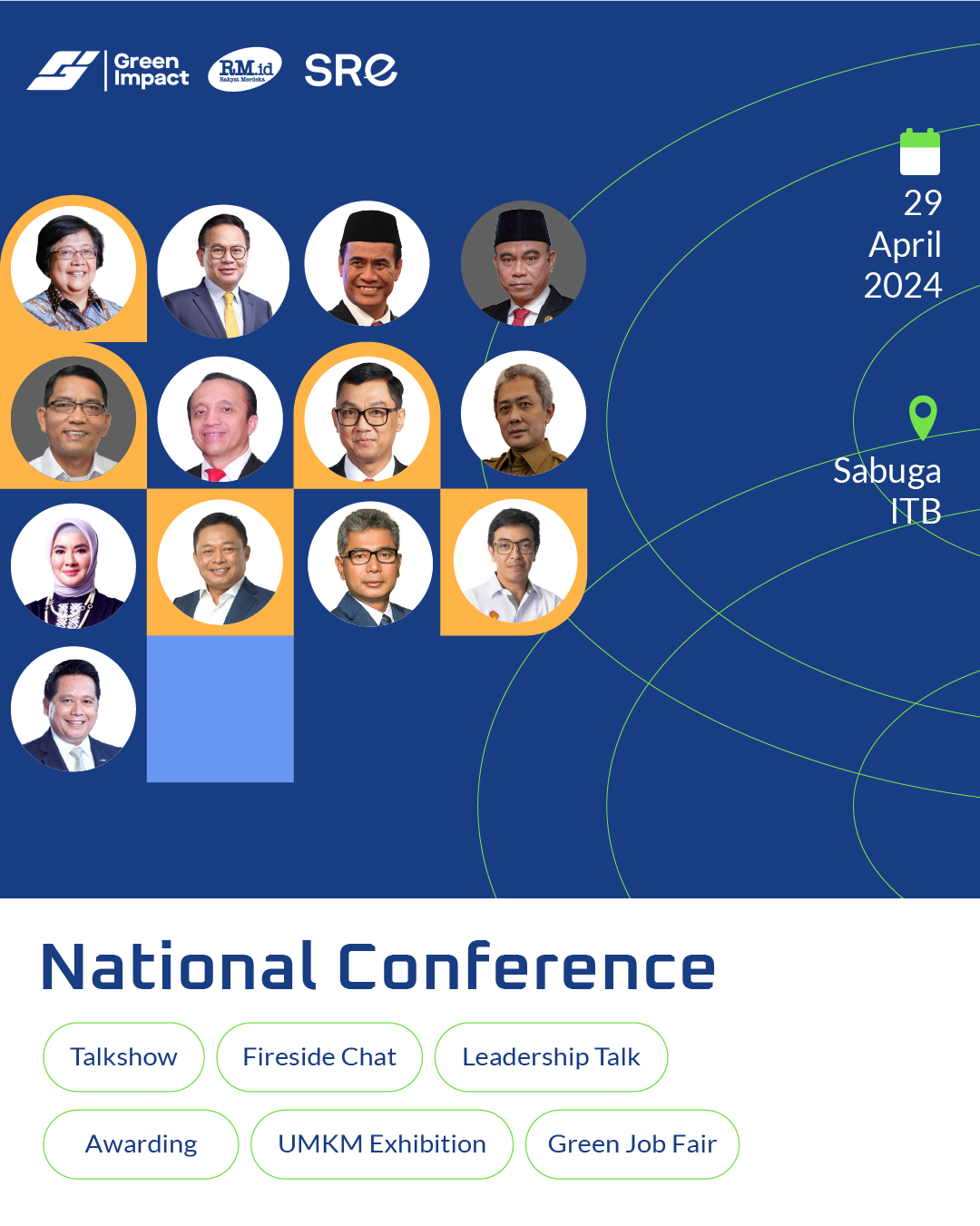
Event / 29 April 2024
Green Impact Days 2024 National Conference
Reiner Nathaniel Jabanto
Sabuga ITB, Bandung, Indonesia
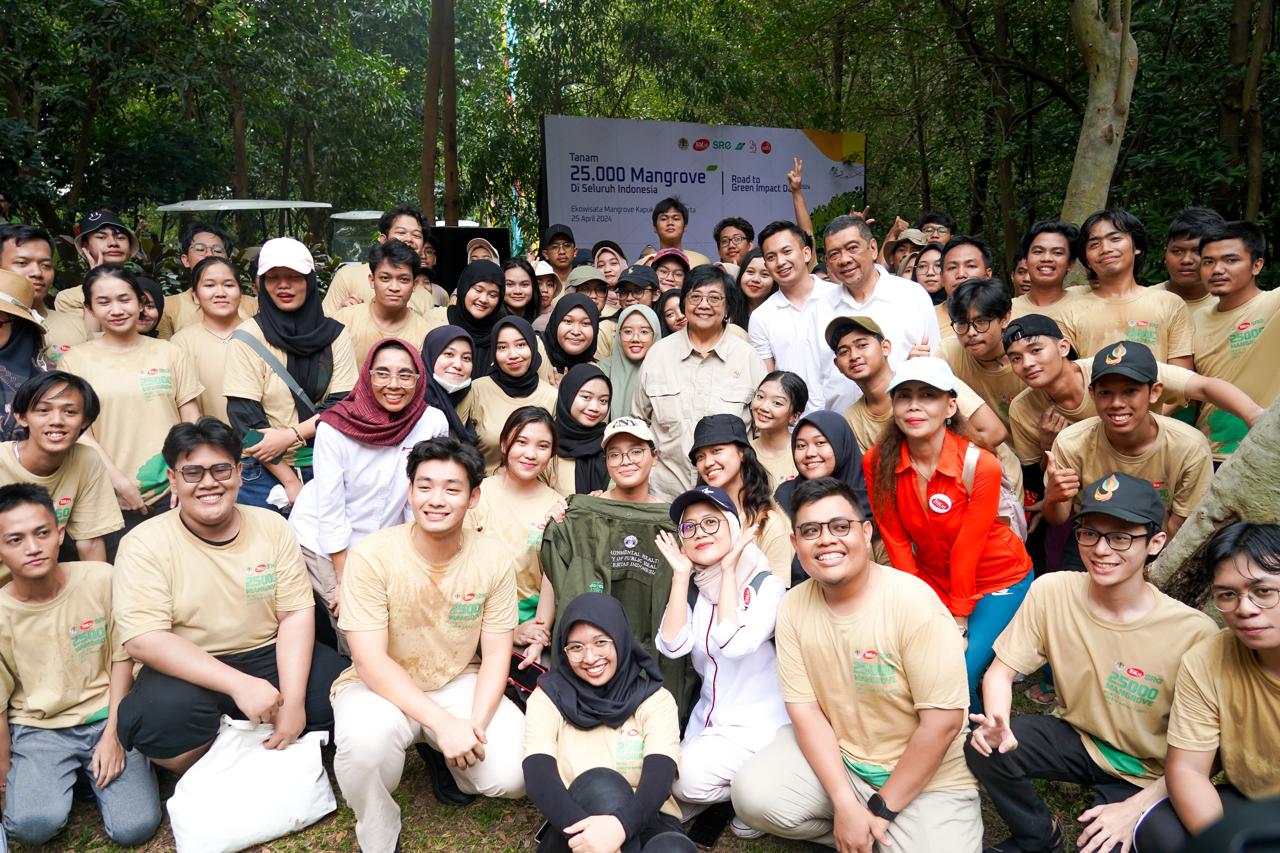
Event / 25 April 2024
Road to Green Impact Day: Tanam 25000 Mangrove di Seluruh Indonesia
Reiner Nathaniel Jabanto
Ekowisata Mangrove PIK, Jakarta, Indonesia
Exciting events coming soon!
Go to events
Opinions
Opinion / Sustainable and Livable Planet
Learning from Youth-Led Climate Action: Lessons Learned from Society of Renewable Energy
Zagy Yakana Berian
21 April 2024
In the face of the pressing global climate crisis, the urgency to take meaningful action has never been greater. Despite international commitments and agreements, progress towards crucial targets like the 1.5-degree limit has been sluggish. Recognizing the urgency, 118 countries pledged to triple renewable energy capacity to 11,000 GW by 2030 and enhance energy efficiency at COP 28 in Dubai. However, amidst this challenge, the rise of youth-led initiatives offers a beacon of hope. One such example is the Society of Renewable Energy (SRE) in Indonesia, which demonstrates how small steps, taken with dedication and innovation, can lead to significant impacts in the fight against climate change. The Role of Youth in Climate Action: Youth engagement in climate action is not just about idealism; it's about recognizing the reality that today's youth will be tomorrow's leaders and decision-makers. Their eagerness to learn and their innate ability to connect across various mediums of communication give them a unique advantage in tackling complex issues like climate change. SRE understands this dynamic and harnesses the power of youth by providing platforms for education, collaboration, and action. The modern problem needs to be solved by unique solutions, especially in dealing with GenZ needs. Current and future generations require the bold trigger for deepening their understanding and taking part of the real implementation. The SRE Approach: SRE's approach is multifaceted, blending top-down and bottom-up strategies, sectoral focus, and practical experience. With 47 student chapters across Indonesia and over 3,500 regenerative members, SRE has established itself as a ecosystem for young climate enthusiasts. Through activities ranging from awareness campaigns to hands-on apprenticeship programs, SRE equips its members with the knowledge and skills needed to drive real-world change. There are six programs from full journey experience becoming a green leadership. Bold movement led to big attention: Throughout their five-year journey in climate action, SRE has remained steadfast in their commitment to inclusivity within climate and clean energy advocacy. This dedication has been coupled with a focus on practical experience, allowing members to apply acquired knowledge in real-world contexts, thus bolstering their capabilities in addressing pressing environmental challenges. One of SRE's flagship programs is rural electrification, where renewable energy power plants have been installed in over 80 locations, benefiting thousands of people, including 300 youth actively involved in the process. The method is a grant without return in the future, in other way, they need pay for operational expenditure includes the replacement component and worker. SRE mobile is around million USD from Corporate Social Responsibility (CSR) and international donors. The other program, SRE's sustainability job platform called HIRE, has helped 20 young individuals secure employment opportunities. The platform is free for every green jobseeker to find their future jobs. These tangible outcomes demonstrate the effectiveness of youth-led initiatives in creating meaningful impact on the ground. The youth established the end-to-end solution in the modern situation. Currently, the accumulated youth impacted by this initiative reached more than 400 thousand people who joined at least a program and a million people who pay attention to youth movement. The youth movement has motivated the government to support youth initiatives and expand collaboration under a larger umbrella involving several governments institutions Green Leadership and Collaboration: SRE is on a mission to nurture a million young leaders under 30, aligning with global needs. These leaders, dubbed "green leaders," will be equipped with specific indicators to monitor their climate and energy knowledge, ranging from basic to advanced levels. Additionally, they will engage in various climate action activities such as conferences, exhibitions, and competitions, as well as participate in social-climate volunteering endeavors like pro-bono consultations and field projects. Moreover, SRE identifies sustainability indicators across different domains, including nature (e.g., carbon reduction, renewable energy capacity, biodiversity conservation), economics (e.g., annual income increments), society (e.g., access to infrastructure), and well-being (e.g., stakeholder partnerships). Embracing a penta-helix collaboration model, SRE fosters holistic partnerships among stakeholders. To ensure progress tracking, a dedicated team consistently monitors activities through digital internal dashboards, supported by student chapter leaders. Communication and Advocacy: In expanding its reach and impact, effective communication plays a pivotal role in rallying support for climate action. SRE recognizes this truth and employs various platforms, such as green podcasts, to share information in a manner that's not only informative but also inviting and enjoyable. Through these podcasts, SRE manages to connect with millions of listeners, igniting within them a shared vision of a sustainable future for Indonesia. Moreover, SRE leverages the power of social media, utilizing eye-catching graphics and short videos to convey their message effectively. This approach not only captures the attention of audiences but also resonates particularly well with Generation Z, who are known for their preference for visually engaging and concise content. By adopting this friendly and accessible approach, SRE fosters a sense of camaraderie and inclusivity, encouraging more individuals to join the movement towards a greener, more sustainable tomorrow. Towards a Sustainable Future: SRE embarked on a journey, starting with small steps, gradually evolving into a venture as social entrepreneurs and eventually transitioning into full-time entrepreneurs within a span of five years. Drawing wisdom from past experiences, SRE now aims to establish green investment funds to aid in supporting advocacy movements by other youth groups. It's evident that a lack of funding often leads to most failures. Hence, SRE looks towards Environmental, Social, and Governance (ESG) funds, green financing from international financial institutions, and other innovative funding avenues as beacons of hope for the younger generation. In this interconnected ecosystem, support flows both ways. Entry-level groups can lend their support to larger initiatives, fostering an environment where experiences are shared, and growth is nurtured. SRE's ambition is to establish 100 youth groups over the next five years, employing a penta-helix model for collaboration. Government collaboration will be pivotal, serving as crucial partners in connecting with other stakeholders. This partnership must begin with the government supporting targeted initiatives and implementing blended support, combining both efforts and funding to ensure success. Conclusion: In the journey towards mitigating climate change, youth-led initiatives like SRE exemplify the power of incremental progress and collective action. By empowering young people, fostering innovation, and fostering collaboration, these initiatives offer a glimmer of hope in the face of daunting challenges. As we continue this path, let us draw inspiration from the small steps taken by organizations like SRE, knowing that each action brings us closer to a more sustainable and resilient future for all.
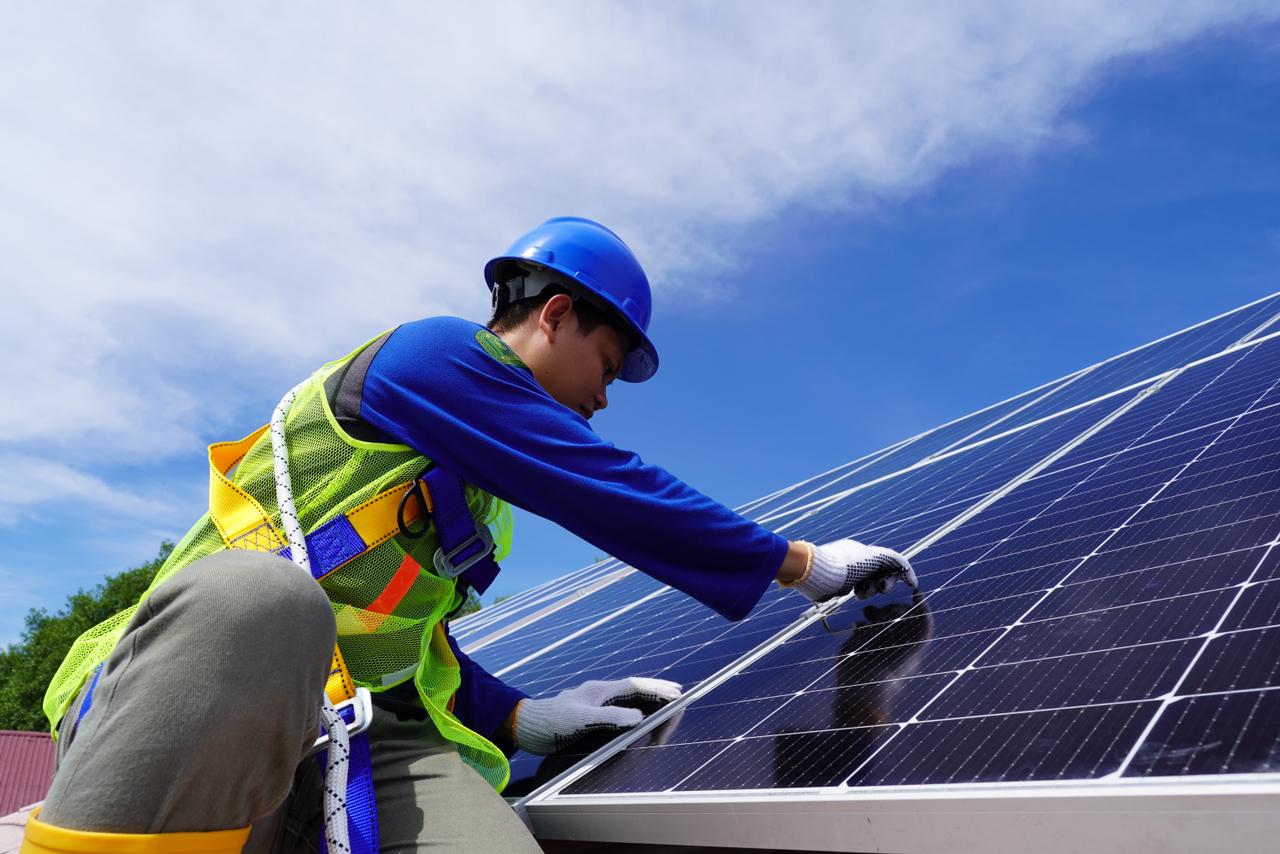
Opinion / Green Economy
Indonesia must transform into know-how and technology-driven economy
Aufar Satria
12 Februari 2024
It is indisputable that Indonesia has been grappling with deindustrialization over the past decade: The plummeting of manufacturing contribution to the gross domestic product (GDP) ratio from 27 percent in 2004 to 18 percent in 2022 and the slowing down of the investment-to-GDP ratio from 34 percent in 2013 to 27 percent in 2022. Compared with China, one of the world's fastest investment and manufacturing-driven economies, Indonesia's manufacturing- and investment-to-GDP ratios appear significantly lower, almost half that of China's. Contrary to the perception that China’s strength lies in its low-cost labor, the reality is that China heavily invests in productive assets, particularly advanced manufacturing equipment such as machines, vehicles and appliances. This investment strategy has catalyzed exponential growth in value-added goods and the accumulation of technological “know-how”. As a result, China has achieved remarkably low unit economics in advanced manufactured goods, including solar panels and electric vehicle (EV) batteries, primarily due to extensive “learning by doing”. This approach has led to an “industrial boom”, propelling China's productive economy forward. In stark contrast, approximately 75 percent of Indonesia's investments are channeled into non-productive assets like buildings and other static infrastructure. Consequently, Indonesia’s incremental capital-output ratio (ICOR) has remained steady at around 5-6.5 over the last decade. This trend reflects Indonesia's shift from a producer to a consumer in certain strategic industries despite having abundant natural resources. Indonesia's reliance on imports, which amount to about US$200 billion annually, with approximately 30 percent coming from China, clearly illustrates this issue. Many speculate that China’s investment and manufacturing-driven economy may slow down in the coming years. On the contrary, according to Pettis (2023), to achieve 4-5 percent annual GDP growth, China might need to aggressively expand into other countries' investment and manufacturing sectors, including, most strategically, Indonesia. China’s contribution to global investment is projected to increase to 38 percent over the next decade. As the largest manufacturing country globally, China is expected to augment its share in global manufacturing output to 40 percent in the next 10 years. This trend suggests that Indonesia and other targeted countries may be compelled to become more dependent on China for manufacturing, potentially reducing their investment-to-GDP ratios to below 20 percent. If Indonesia fails to reindustrialize, this scenario is likely to materialize. Indonesia therefore must reassess its growth strategy. One approach for Indonesia is to consider various degrees of industrial protectionism. As Haussman (2023) notes, industrial policies and “picking the winners” strategies are gaining traction globally, with more countries enacting legislation to boost local production. The United States, for instance, has implemented the $280 billion CHIPS and Science Act to expand its semiconductor industry and the $370 billion Inflation Reduction Act for energy-transition incentives, both aimed at reducing dependence on Chinese products in these markets. Haussman (2021) emphasizes that economic development in developing countries heavily relies on the accumulation of know-how. Like the game of Scrabble, each country starts with a set of existing capabilities or “letters” to form “words”, representing products that can be produced and exported. Countries can then collect more “letters” to form additional “words” through strategic partnerships, investments in education and diaspora and other policies. In the last decade, Indonesia has implemented a nickel export ban to incentivize local industrial smelters, an “upstream driven” policy to accumulate more smelter “letters”. President Joko “Jokowi” Widodo highlighted a 30-fold increase in the value of Indonesia's nickel-related exports since the ban's implementation. From the other side of the value chain, the government's “downstream driven” industrial policy, exemplified by EV tax incentives, has attracted major players like BYD to establish production facilities in Indonesia, thereby accumulating more automotive manufacturing “letters”. These initiatives, leveraging Indonesia’s rich natural resources and strategic positioning, are pivotal and should be intensified by accelerating ecosystem, education and skillset building, especially in science, technology, engineering and mathematics (STEM). In the coming decades, Indonesia is expected to undergo a demographic transformation, evolving from a young demography to a productive population. Indonesia is facing a race against time in this transition. A rapid build of an ecosystem conducive to attracting and nurturing know-how is essential. This involves establishing policies that retain local talent and attract foreign expertise and investment locally. Indonesia must cultivate an environment fostering innovation, research and development and entrepreneurial spirit. This can be achieved through incentives for high-tech industries, streamlined regulations that facilitate ease of doing business, robust intellectual property rights protection and, most importantly, by building leading, industry-specific, human capital institutions across Indonesia. Another lever is fostering partnerships with international companies and educational institutions, which can bring in a wealth of practical knowledge. Such collaborations can lead to technology transfer, skill development and the creation of high-value industries. This partnership strategy coincides with global economic transitions, including green energy initiatives, digitalization and advancements in artificial intelligence (AI). These developments present a unique opportunity for Indonesia to emerge as contributing, if not leading, in these developing sectors. Eventually, these industrial and downstream initiatives can achieve a multiplier effect beyond the targeted sectors. As a benchmark, Finland initially focused on developing value for its wood industry in paper or policies. It ended up with an advanced phone manufacturing industry, with Nokia at the center. While accumulating know-how in machines that cut wood, Finnish businessmen realized that the capabilities could be translated to automated machines that produce smartphones. This was also the case with the Middle Eastern countries entering into advanced, adjacent industries (i.e., airlines) from oil and gas. If industrial and downstream policies are implemented, Indonesia might develop other unexpected value-adding sectors. Indonesia must transform into an investment, know-how and technology-driven economy. In this vision, investment growth becomes the primary contributor to GDP growth. Such high growth not only creates high-quality job opportunities but also boosts and equalizes incomes in the long term. Large-scale investments targeted efficiently and effectively, and adopting new technologies and leading human capital will enhance economic productivity (ICOR). Ultimately, this cycle will create a strong development loop starting with the competitiveness of Indonesia's industry, maximizing value addition and boosting exports, leading to an industrialized and robust economy set to be enjoyed by future generations – strong enough to not be reliant on the Chinese economy.
Let the ideas collide
Go to opinions
Research
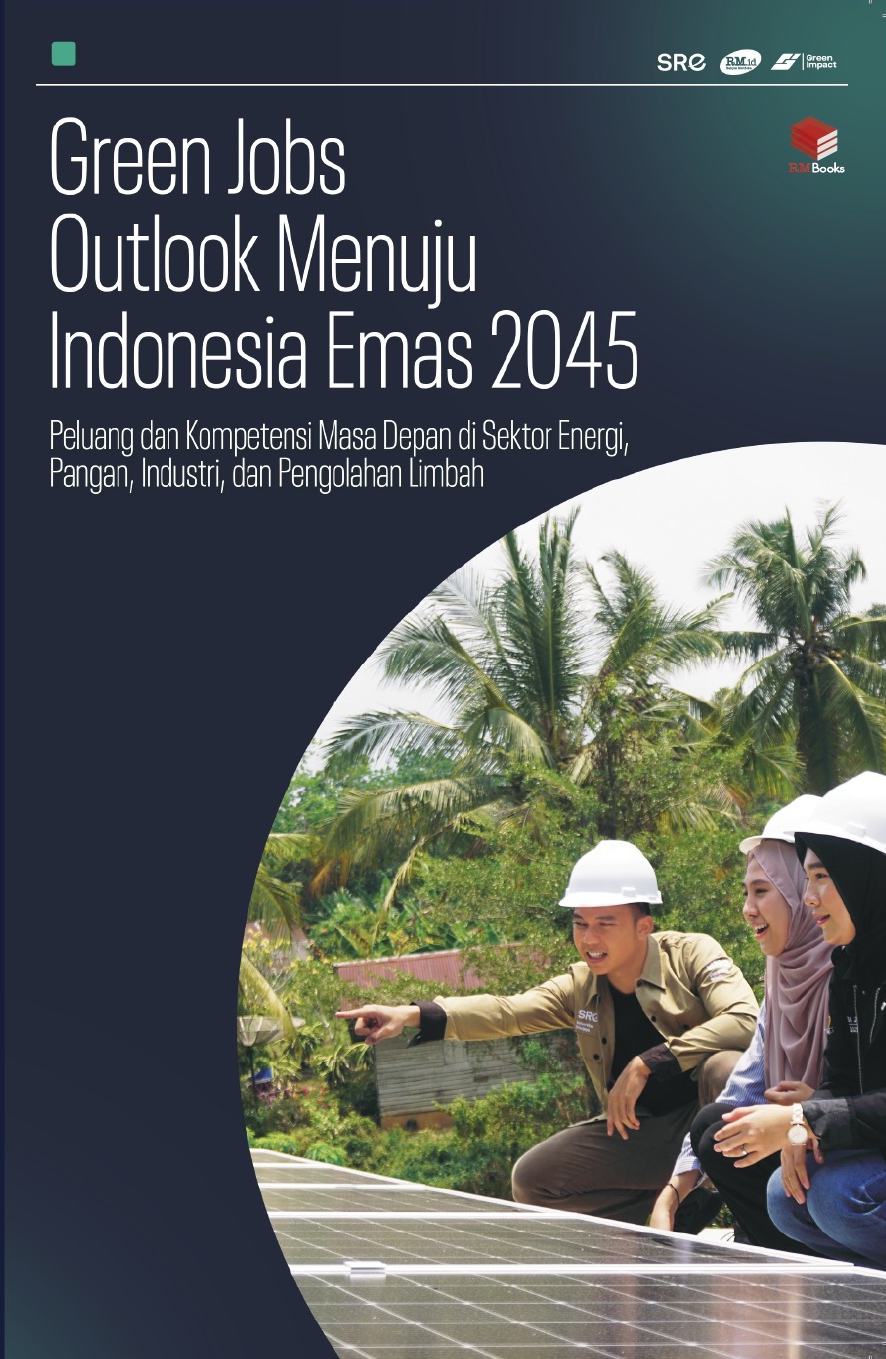
Research / Food Security
Green Jobs Outlook Menuju Indonesia Emas 2045: Peluang dan Kompetensi Masa Depan di Sektor Energi, Pangan, Industri, dan Pengolahan Limbah
Aufar Satria, Zagy Yakana Berian, Reiner Nathaniel Jabanto, Leonardi Ryan Andika, Justine Kael Tanady, Juan Khosashi, Bryan Eagan, Ryan Kendrick Hoatmodjo, Raffy Hakim Subekti, Claudia Suwardi, Melvyn Kearney, Averey Sinclair, Nala Amirah Putri, Angelica Valerie
21 April 2024
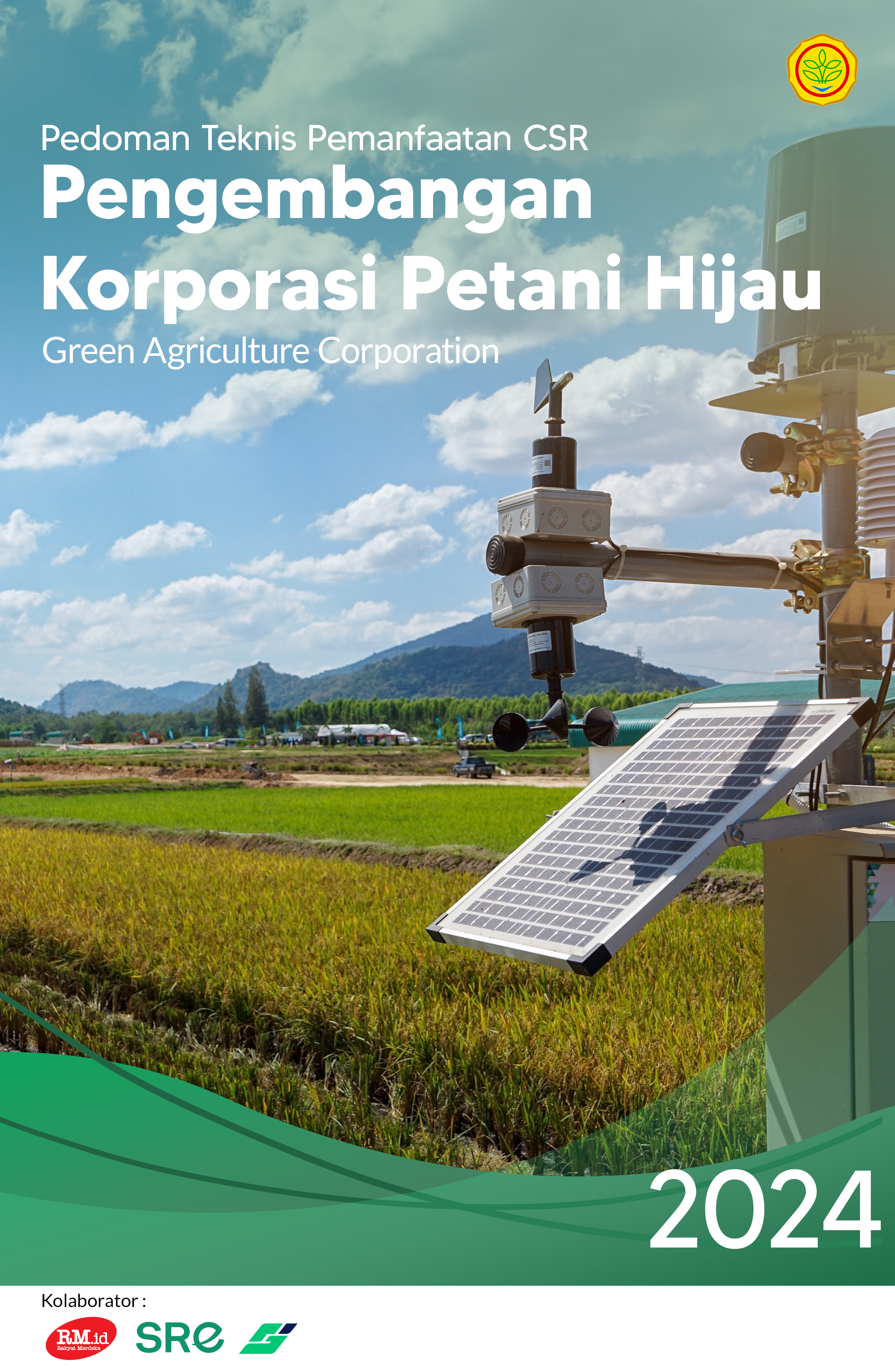
Research / Green Economy
Pedoman Teknis Pemanfaatan CSR: Pengembangan Korporasi Petani Hijau / Green Agriculture Corporation
Zagy Yakana Berian, Raffy Hakim Subekti, Reiner Nathaniel Jabanto
20 April 2024
Dive further with our latest research
Browse Research